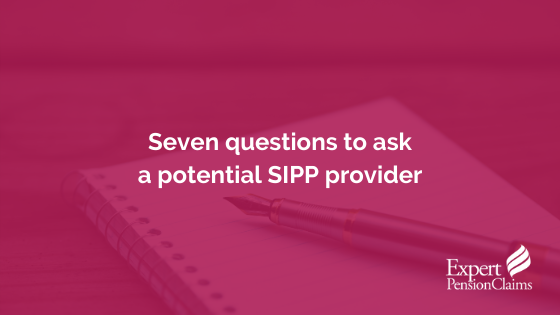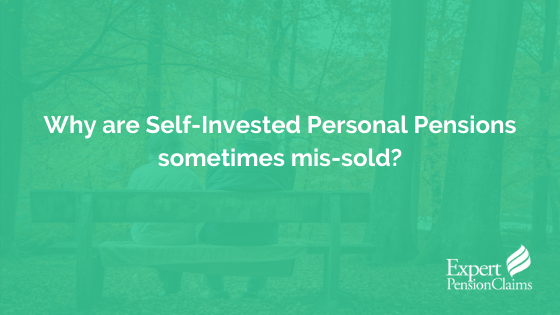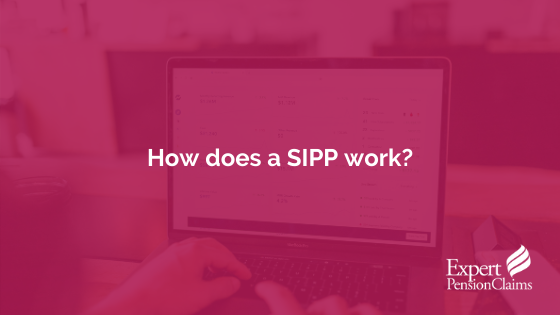With any investment, there is an element of risk involved which means making a profit is never guaranteed. However, if you are willing to take those risks and wish to put your money into a self-invested personal pension (SIPP), it is vital to investigate your provider before signing up with them, to ensure that they don’t add more unnecessary risk factors by choosing them.
There are many questions to ask when either hiring your first SIPP provider or switching to a new one. While asking the obvious questions are important, there are others that dive a little deeper. Asking about who the providers are, how they run their business, and consequently, how they manage your pension can highlight how they might affect you in the long run. Take a look at some of the essential questions to ask a potential provider that often get forgotten.
1. What is their financial position?
While assessing your own financial position and working out how much you are looking to invest, it is worth investigating the financial position of your potential SIPP provider. This will allow you to ascertain how stable the services they offer can be, as well as how legitimately they do business. Enquiring about whether there have been any significant spikes or drops in revenue or any long-term decreases in turnover can be an indication of whether the provider is likely to cause any problems in the future.
Consider asking about what has caused these fluctuations – there could be a simple reason behind it. Still, if you discover some discrepancies behind their explanation or you find some serious issues with their finances, it might be worth looking elsewhere.
2. How do their fees work?
When it comes to your pension, regardless of which scheme you join, you should know what regular or one-off fees you could be charged. Some providers may choose to take a balanced approach with fees, offering very typical rates that you are familiar with. However, others may opt for a more tactical approach to appear to be more affordable than they are, when realistically they will be charging the same amount, if not more, than their competitors through hidden fees. Ask exactly how much you will be paying for both start-up fees and annual fees, as well as anything else you should know.
If you find yourself in a situation where you need to query something, you should know if there are any extra fees for email or telephone communication. You should also see if they plan to change their fee structure in the future. Fees aren’t necessarily fixed for the duration of your plan, and it is useful to know if they are likely to change them.
3. What percentage of interest do they take on earnt cash?
Fixed rates are a way for SIPP providers to make a reliable income from your pension plan. However, this is not the only way they can profit from you. SIPP providers can take a percentage cut from the interest you make on cash earned; this is known as ‘interest turn’.
The amount they take varies largely; some providers take nothing, some even take the majority. SIPP providers don’t withdraw percentages of dividends from your invested stock, so many question why they do so with cash holdings. Providers make it incredibly difficult to compare themselves to competitors due to various ways they make their money. Asking whether they take an interest turn is an incredibly important question if you are planning to retain much of your profit in a bank account. If they don’t, this can make comparing providers a whole lot easier.
4. How many SIPPs do you hold?
Having a provider answer how many SIPPs they hold over a period of time is an excellent indication of how stable their growth is and at what rate, and even to gauge if their growth is reversing.
You should question their SIPP holdings over the past three consecutive years. Consider asking about the value of these investments. Are they of a similar weight to your pension plan and can they sustain these values for a considerable amount of time? If their average SIPP values are very high, will they treat yours as a priority? Or are they relatively low, symbolising that they have less experience and might be unable to drive for the returns you are hoping for.
5. What can I or can I not invest in with you?
While HMRC places restrictions on some investments, such as types of property and land, does the provider have other limitations in place, and do they seem to be heading in a more restrictive direction? Some providers can prohibit members from holding particular investments if they don’t offer as much ease meeting their capital adequacy requirements. If you are looking to take a hands-on approach with your assets and have a particular strategy in mind, you should be aware of how your provider could impede this.
6. Which accounts or institutions do they restrict access to?
If you are just beginning to manage your SIPP or you haven’t dealt with a SIPP provider in a while, you will either learn or be reminded that while your pension plan is in your name, providers can be very dictating with the flexibility of your investments and where you can retain your returns. A plethora of rules are often established to limit which institutions you can open an account with, as well as limitations on accounts that have particular interest rates. It is worthwhile enquiring what restrictions they have in place if you have plans to open a specific type of account, or if they will not accept the accounts you currently use.
7. What are your provider change fees?
It is not in the best interest of a SIPP provider to have clients switch to a competitor. However, as they cannot stop you from leaving, many organisations place fees on this switch to encourage you to stay. Suppose switching to another provider in the future could be a possibility for you, maybe because you are monitoring alternative cost-saving routes. In that case, you should be aware of exiting fees which could cost you more than you would save if you left for a cheaper provider. These fees can be extortionate, and unfortunately for those signing up for new plans, they are often discreet and hidden. Regardless of how awkward it may sound to ask about leaving before you have even signed up, be sure to question a potential SIPP provider on this.
Many who have held a SIPP have forgone asking essential questions like these to potential SIPP providers. Sometimes, it has left them in predicaments where their investments have gone sour, or they are unable to leave their provider due to various fees. If you believe that you have been misinformed or your SIPP pension was mis-sold, you may be entitled to compensation. Contact us today to start a conversation and find a way to move forward.














